TOUGH NEEDLE TO THREAD
Weaving through hard times for hope and livelihood in Mpumalanga
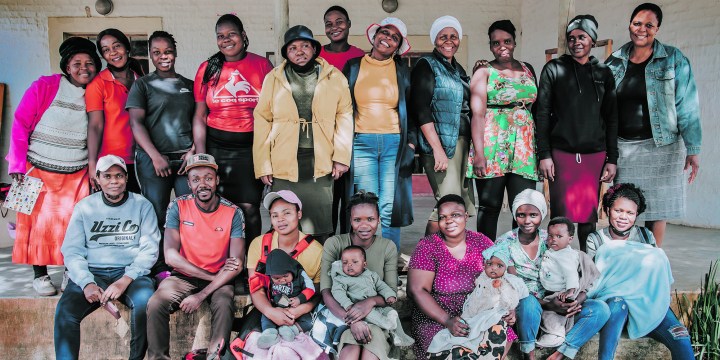
The decades-old Mapusha Weaving Cooperative was on the brink of collapse when a non-profit organisation stepped in and helped it modernise and find new markets. Its members weave, spin, knit, sew and crochet to provide food for their families in an area plagued by high unemployment.
Lindy Molimo, Regina Hlabbane, Anna Mbetse and Gertrude Mbetse are all more than 70 years old, but they clamber with apparent ease onto a huge scaffolding to work on a massive weaving loom. They are weaving a carpet for a local decorator in nearby Hoedspruit, and the money they earn will feed their families.
These gogos are part of the Mapusha Weaving Cooperative in Rooiboklaagte, a rural area on the border between Mpumalanga and Limpopo. They have been weaving for more than 40 years, ever since the co-op was started.
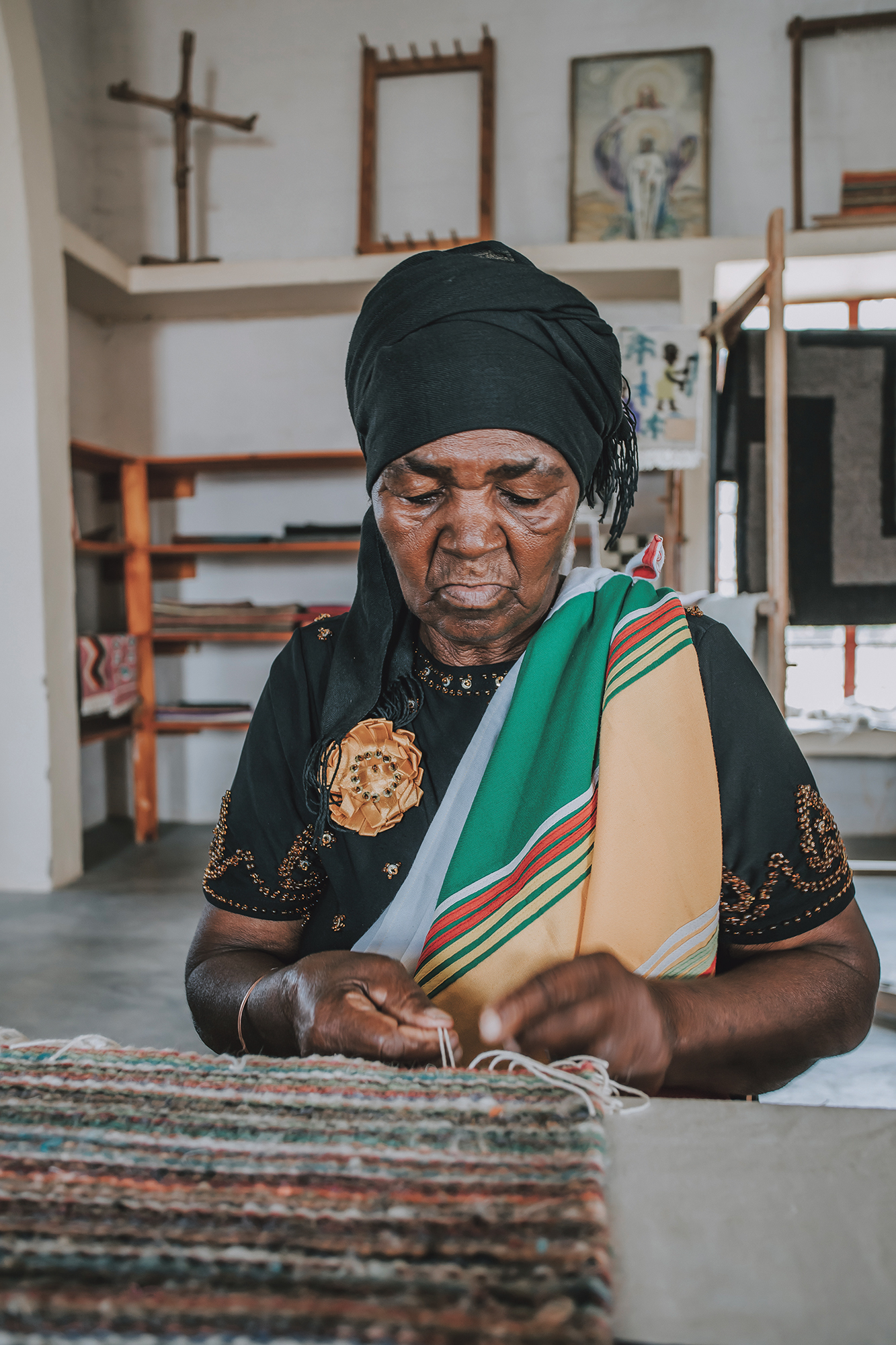
Gertrude Mbetse has been a member of Mapusha Weaving Cooperative since its inception in the 1970s. (Photo: Bridget Hilton-Barber)
In the adjoining room, a group of women are spinning wool and working on smaller looms to make rugs and runners. Alongside them is a long table where others are sewing, knitting and crocheting.
Mapusha’s members are all women — except for one guy who learnt to sew this year and is making cushion covers, placemats and laundry bags for a local lodge.
Situated on the edges of Acornhoek, Rooiboklaagte is a poor area where living conditions are rough. Most homes lack running water and electricity. There is a high HIV prevalence and high unemployment.
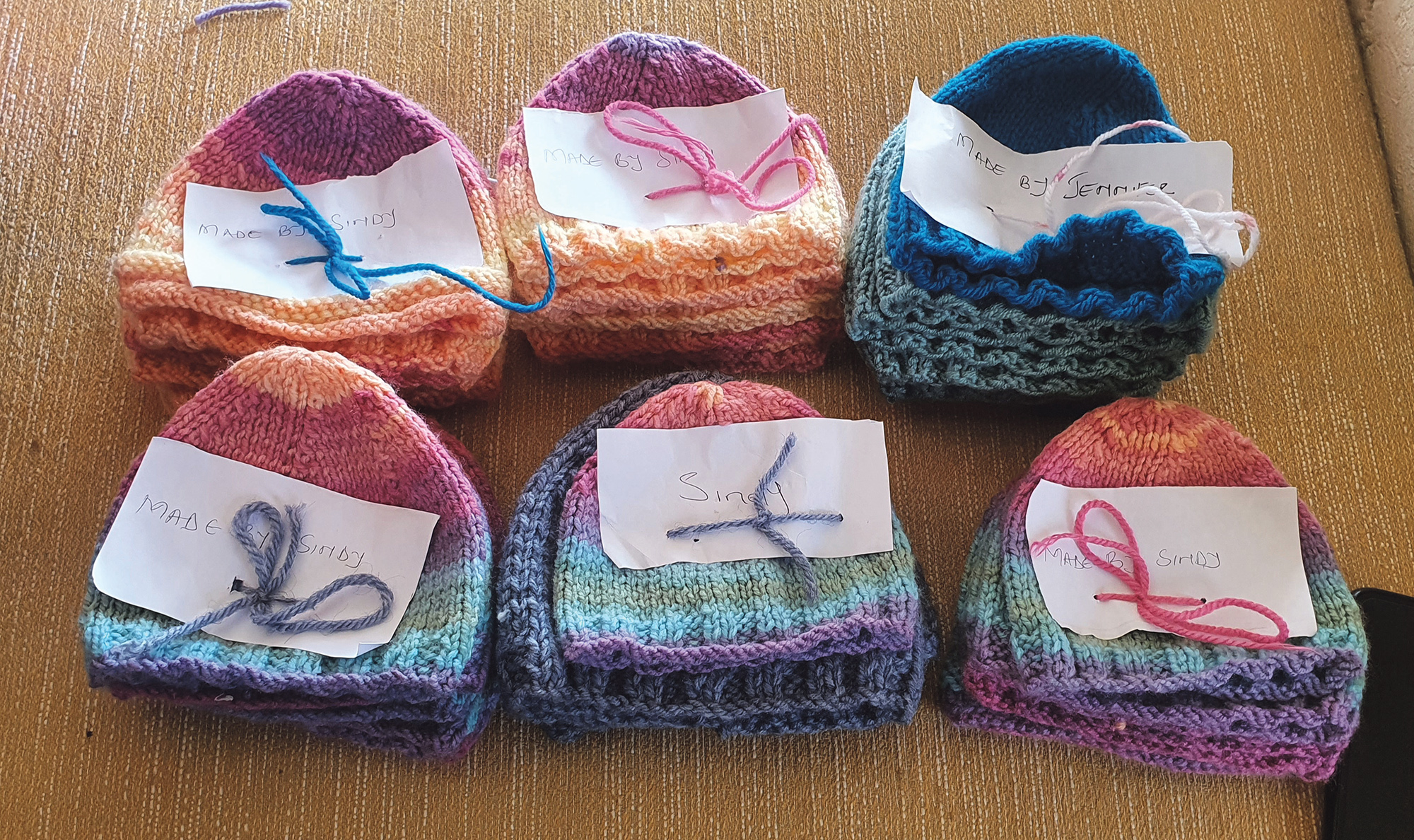
Bonnets that have been knitted for newborns at nearby Tintswalo Hospital. (Photo: Bridget Hilton-Barber)
Thousands of people lost their jobs during lockdown — one private reserve retrenched over 600 people — and the impact hit these communities hard.
Precious Monareng, a mother of three, lost her job as a chef at one of the private game reserves and learnt to weave and sew to earn an income. At least this is something, she says, and she has learnt a new skill.
In the 1970s, a group of Sotho and Shangaan women from the Mapulaneng area (Mapu and Sha became Mapusha) came together and, with the help of a German mission, were trained to weave, spin, sew and dye.
A studio was built, looms constructed and more women trained. In the 1980s, the co-op employed 26 women who created tapestries with biblical designs for sale, mainly in Germany.
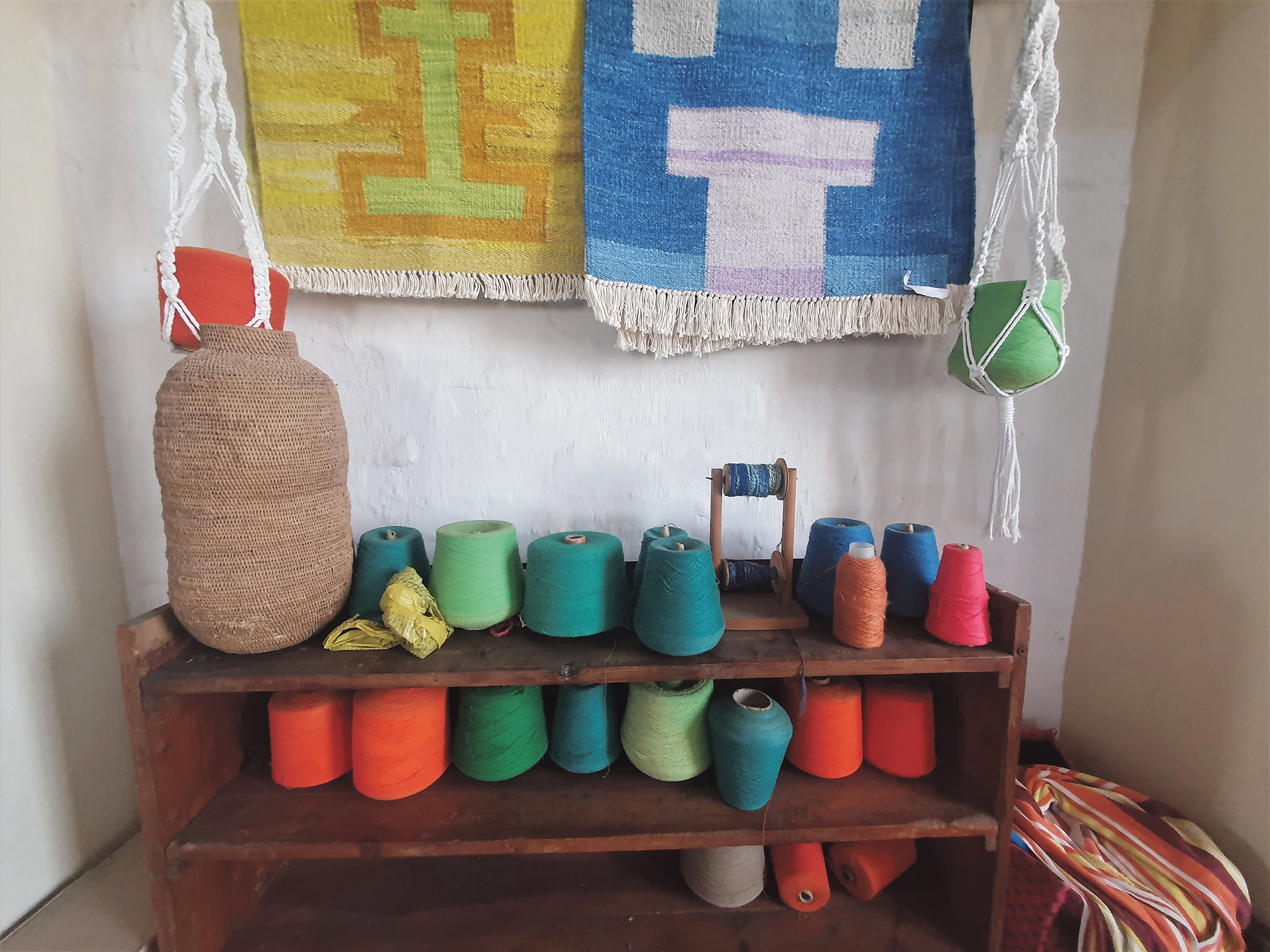
Dyed wool ready for weaving. (Photo: Bridgette Hilton-Barber)
When Spanish priests replaced the German priests in the 1990s, more energy was devoted to building churches than to supporting self-help projects. For nearly a decade, the weavers struggled on their own, with their numbers dwindling along with the co-op’s ability to pay salaries.
In 2002, only six women came daily to the studio. From there, they walked 5km to a paved road, carrying heavy rugs on their heads, where they sat for the whole day, hoping to make a sale.
In that same year, an American living in Hoedspruit, Judy Miller, connected with the weavers and managed to get donations to build a centre called New Dawn, which still houses the weaving co-op today. She helped the weavers get going again by introducing more modern weaves and designs and selling them in the US.
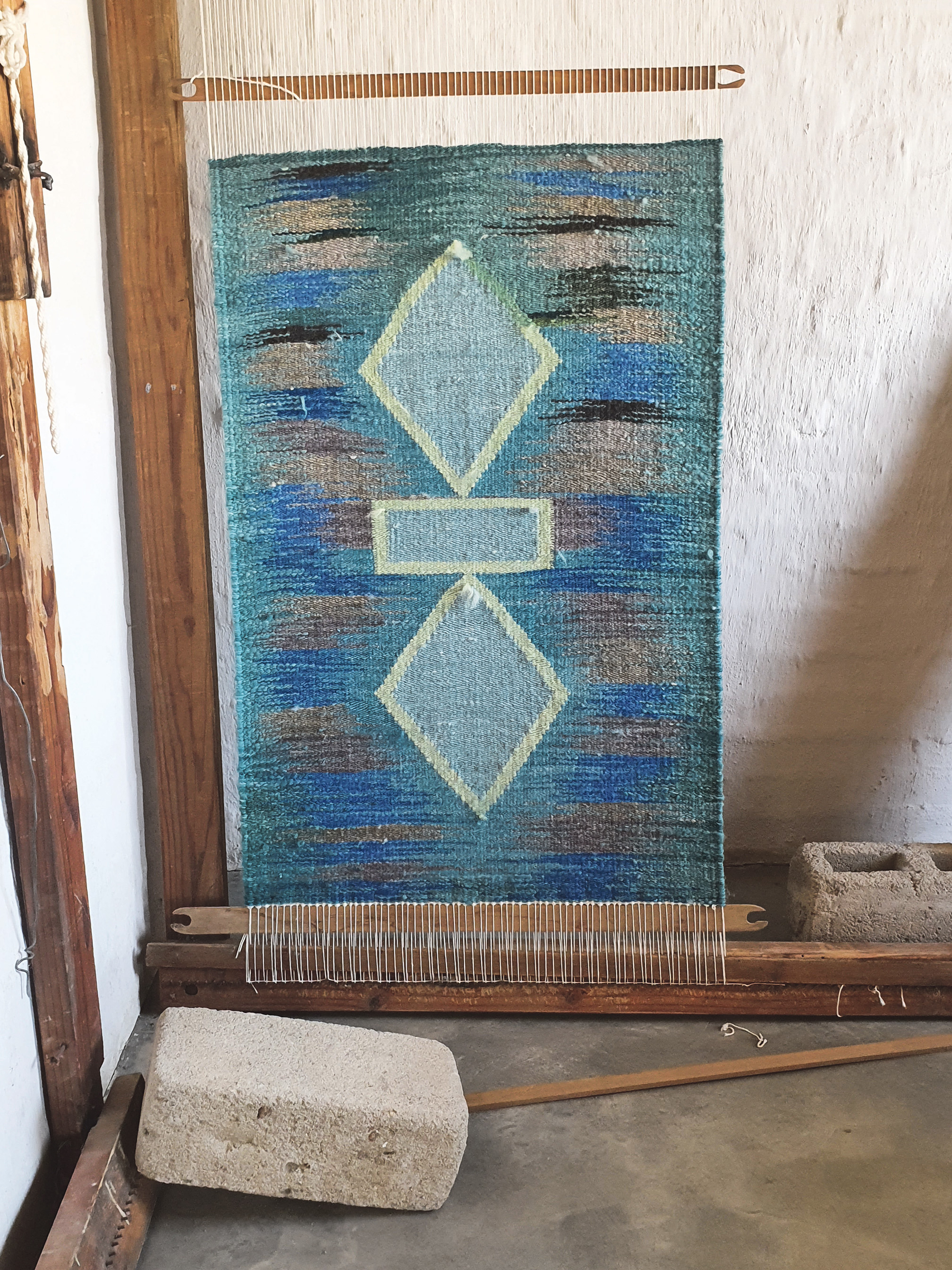
A rug that is in the process of being completed. (Photo: Bridgette Hilton-Barber)
Miller worked with the co-op right until lockdown, when she developed dementia. She eventually died this year.
Visit Daily Maverick’s home page for more news, analysis and investigations
The co-op had almost collapsed when the Kulani Collective stepped in to help. A nonprofit organisation (NPO) comprising three women from Hoedspruit, the collective aims to assist and train local artists in the area.
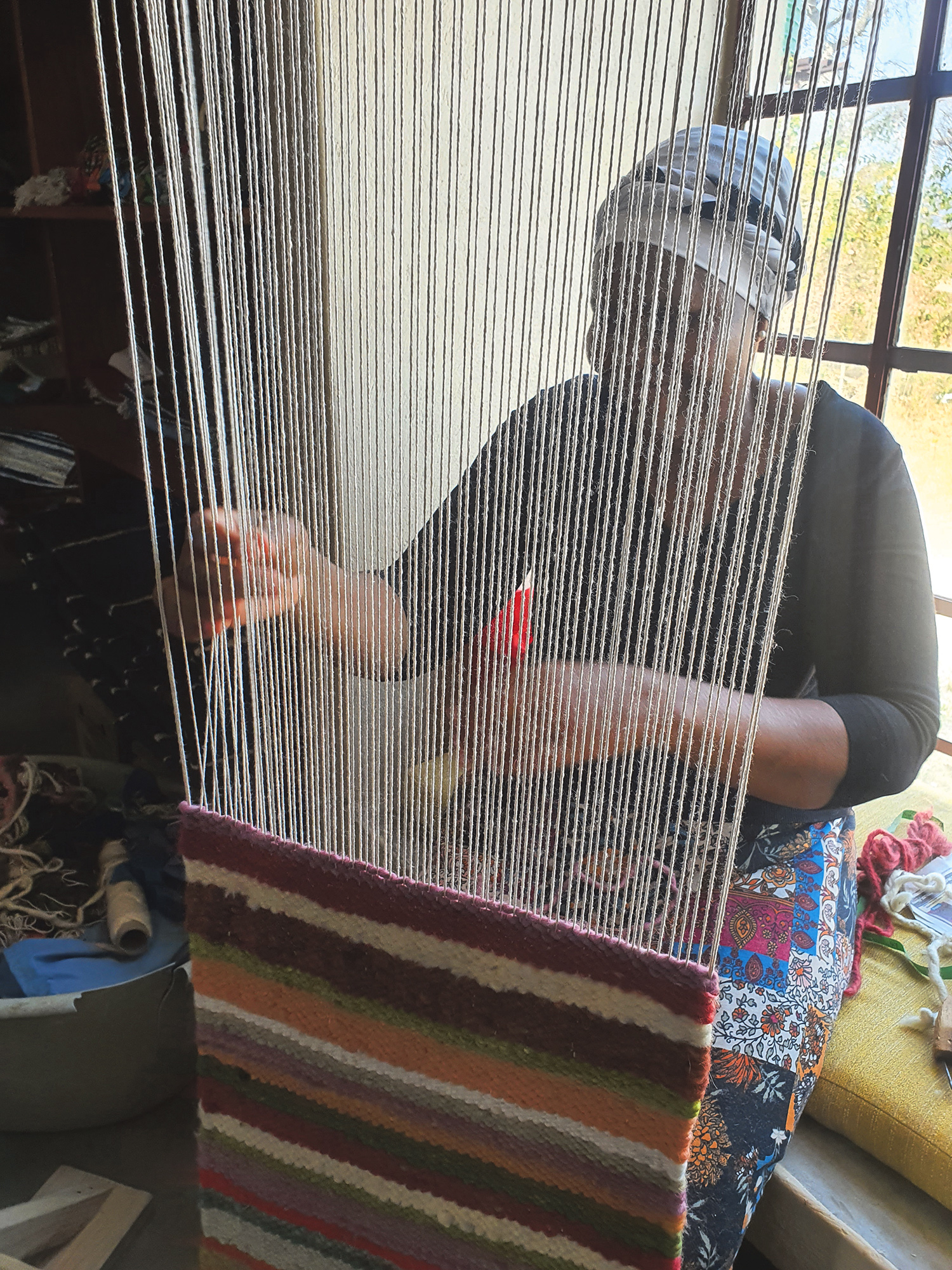
Precious Monareng at the loom. (Photo: Bridgette-Hilton Barber)
Angi Ellett, Tracey Thurlow and Alex Adams have different skills that lend themselves to their collective strength. Thurlow has a background in textile design and education in the craft, Elliot has a business and music background, and Adams comes from the fields of law and education.
They’re assisting the weavers in modernising the designs to suit contemporary taste and matching products with buyers. The huge carpet the gogos are making is going to a local decorator, who is using it for a new Dutch client. The Mapusha women are also knitting caps for newborn babies for nearby Tintswalo Hospital and sewing pangolins from fabric scraps to sell in shops to raise awareness of the endangered creature.
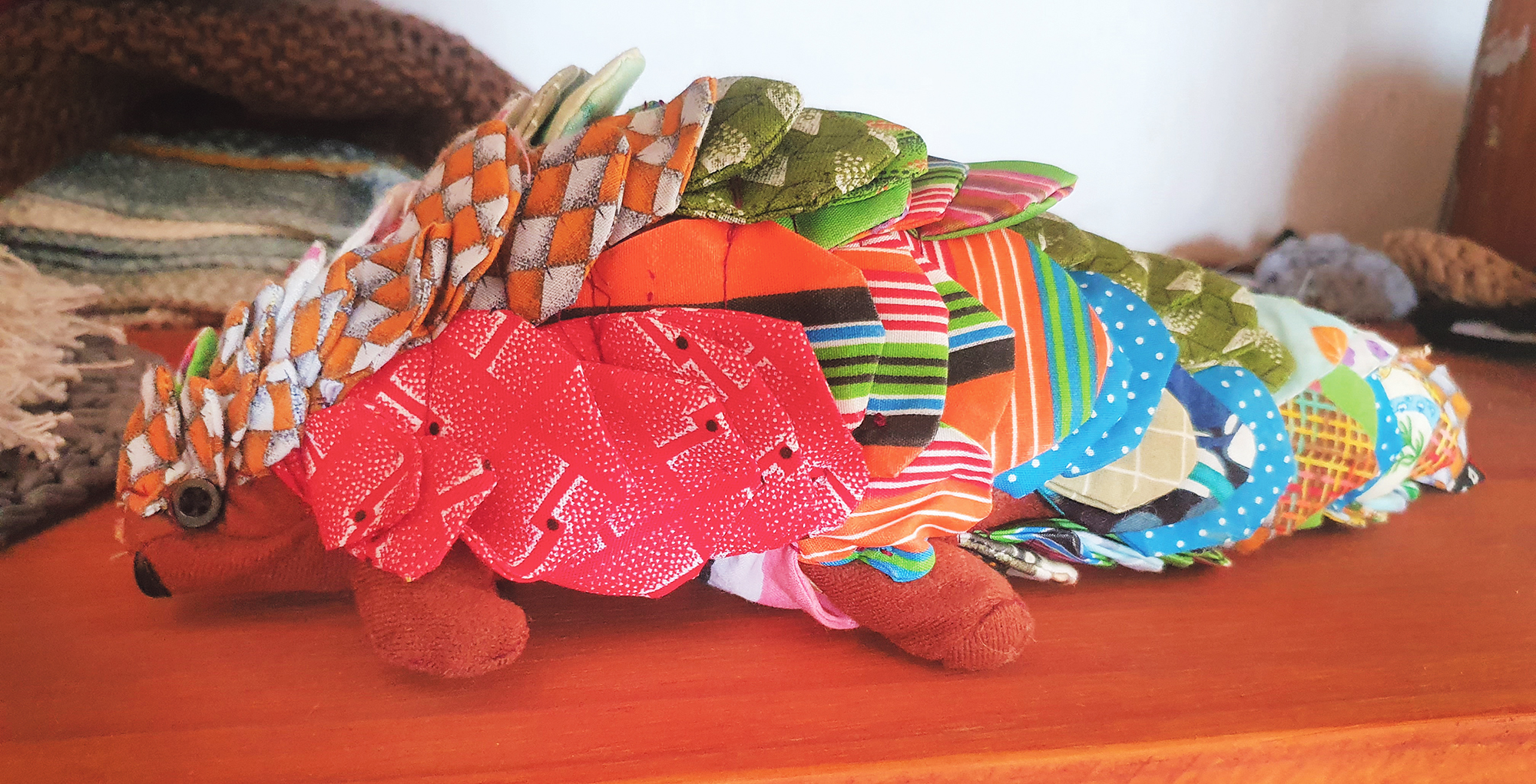
A hand-sewn pangolin. (Photo: Bridgette Hilton-Barber)
The Kulani Collective has funded a new electricity cable and pays the New Dawn Centre’s electricity. It did a massive cleanup at the centre and supplied sewing machines and materials for a training course held earlier this year.
In April, Kulani teamed up with Rekamoka Pottery Studio to do a pottery, sewing, crocheting and weaving training programme, teaching as many as 60 people these creative skills. It also teamed up with Kruger2Canyon, a local newspaper, and ran a 12-week business training programme, after which Rekamoka Pottery Studio employed a dozen people.
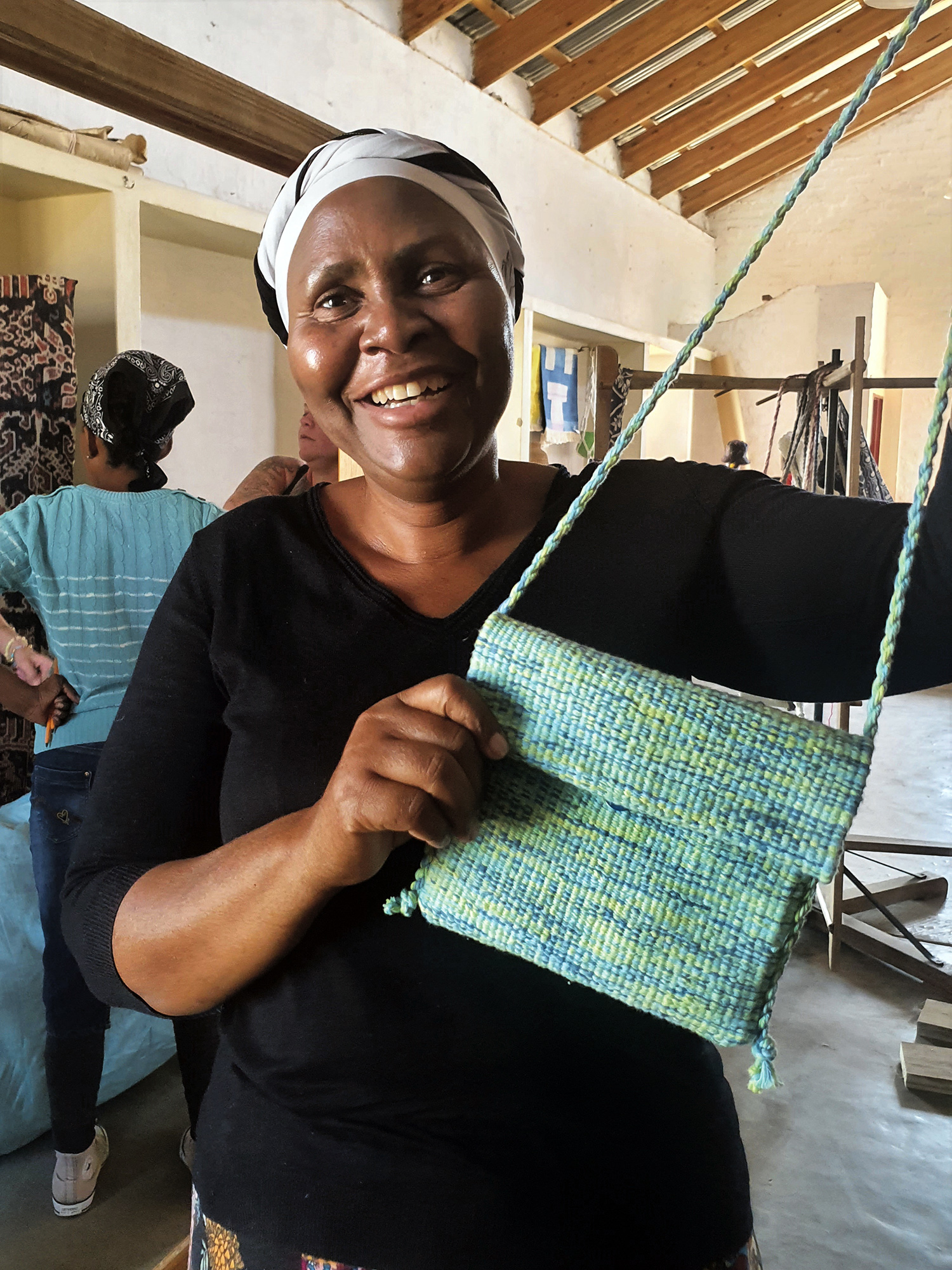
Precious Monareng shows off the handbag she has crocheted. (Photo: Bridgette Hilton-Barber)
Next door to the New Dawn Centre is the Peanut House, which got its name from the groundnuts some of the weavers used to grow there. The Kulani Collective is trying to raise funds to fix the roof of the building and start up a pottery centre to train un-employed villagers in the craft.
Together, the weavers and Kulani Collective have also started a food garden, assisted by Trygive Nxumalo, who works for an NPO called A Spring of Hope that teaches permaculture techniques to rural centres, schools and community gardens. DM168
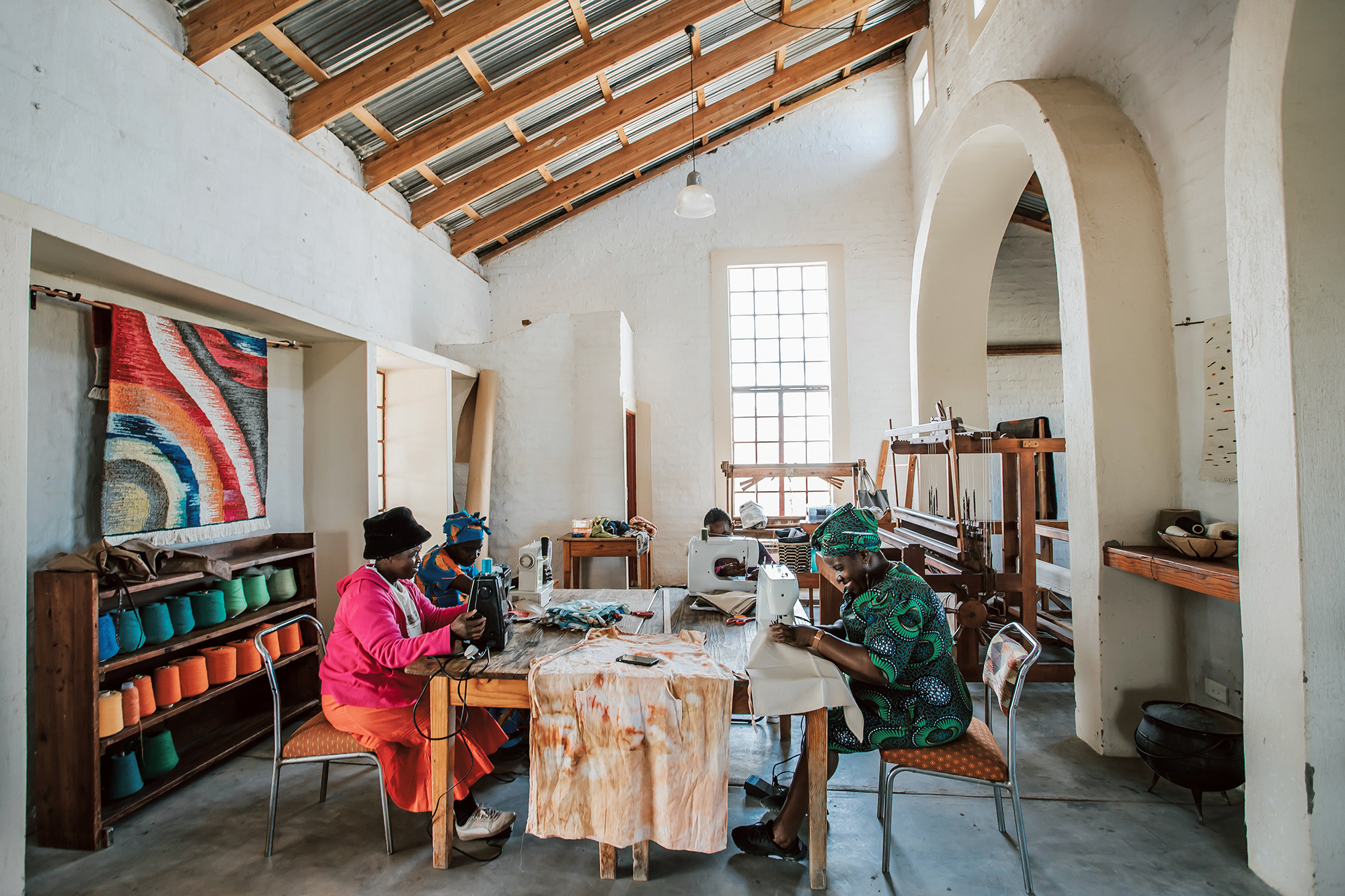
Inside the Mapusha Weaving Cooperative. (Photo: Bridgette Hilton-Barber)
This story first appeared in our weekly Daily Maverick 168 newspaper, which is available countrywide for R25



















Comments - Please login in order to comment.